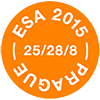RN coordinator:
Mark D. Jacobs, George Mason University, Fairfax, VA, USA
mjacobs(at)gmu.edu
|
General session The sociology of culture is central to inquiry into the themes of the 12th ESA Conference. “Differences,” after all, are cultural classifications that hinge on entire classification systems. These classifications help both enforce and reflect varied structures of “inequality,” hard realities requiring for their legitimation a set of discourses, narratives, and moral ontologies. The “sociological imagination”—which as C. Wright Mills famously noted, has the power to recast private troubles as public problems—can foreground, unpack, and counter these discourses, narratives, and ontologies. How does culture help ground political power, economic compulsion, collective memory, and civic status? How do they in turn help ground culture? Politics and economics are realms of compulsion; within limits of ecological constraint, culture is a realm of relative freedom. Cultural analysis cuts through to the root issues of freedom and necessity, existence and identity. Culture is of special relevance to “differences, inequalities, and sociological imagination” because it has the capacity to de-naturalize and re-envision categories of understanding them. The concept of culture is no less contested than culture itself. The sessions devoted to cultural sociology should contribute to a focus on the semantic tensions framing that concept. In what ways is it a structure, or a site of agency? Instrumental or expressive? Essential or constructed? Global or local? Repressive or emancipatory? These semantic tensions play out variably (and not as simple binaries), according to the specifics of the empirical case. We welcome case studies, statistical analyses, and other empirical investigations along with more theoretical exegeses relevant to the concept of culture. Of course, we welcome submissions of any empirical or theoretical orientation. Members of the Board of the Research Network will judge submissions on the basis of the significance of the research problem (i.e., the degree to which it alters the conversation about culture and the themes of this conference), the cogency of the proposal, and the strength of warrant of the evidence considered.
|
|
Notes for authors Authors are invited to submit their abstract either to the general session or any specific session. Please submit only to one session. After abstract evaluation, coordinators will have the chance to transfer papers between sessions where applicable. Abstracts should not exceed 250 words. Each paper session will have the duration of 1.5 hours. Normally sessions will include 4 papers. Abstracts must be submitted online to the submission platform, see below. Abstracts sent by email cannot be accepted. Abstracts will be peer-reviewed and selected for presentation by the Research Network; the letter of notification will be sent by the conference software system in early April 2015. Abstract submission deadline (extended): 15th February 2015 Abstract submission platform: www.esa12thconference.eu |
|
If you have further questions on the conference, please visit the conference website. For further information on the Research Network, please visit www.europeansociology.org. |






